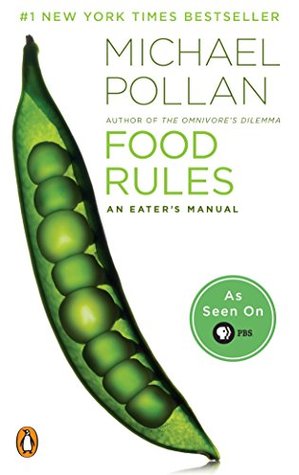More on this book
Community
Kindle Notes & Highlights
FACT 1. Populations that eat a so-called Western diet—generally defined as a diet consisting of lots of processed foods and meat, lots of added fat and sugar, lots of refined grains, lots of everything except vegetables, fruits, and whole grains—invariably suffer from high rates of the so-called Western diseases: obesity, type 2 diabetes, cardiovascular disease, and cancer.
FACT 2. Populations eating a remarkably wide range of traditional diets generally don’t suffer from these chronic diseases.
Eat food. Not too much. Mostly plants.
The food scientists’ chemistry set is designed to extend shelf life, make old food look fresher and more appetizing than it really is, and get you to eat more.
Eat only foods that have been cooked by humans.
It’s not food if it arrived through the window of your car.
It’s not food if it’s called by the same name in every language. (Think Big Mac, Cheetos, or Pringles.)
Treat meat as a flavoring or special occasion food.
“Eating what stands on one leg [mushrooms and plant foods] is better than eating what stands on two legs [fowl], which is better than eating what stands on four legs [cows, pigs, and other mammals].”
Eat all the junk food you want as long as you cook it yourself.
Be the kind of person who takes supplements—then skip the supplements.
Supplement takers are healthy for reasons that have nothing to do with the pills. They’re typically more health conscious, better educated, and more affluent. They’re also more likely to exercise and eat whole grains. So to the extent you can, be the kind of person who would take supplements, and then save your money.
Drinking a little every day is better than drinking a lot on the weekends, and drinking with food is better than drinking without it.
If you spend more for better food, you’ll probably eat less of it, and treat it with more care.
“Drink your food, chew your drink.”


